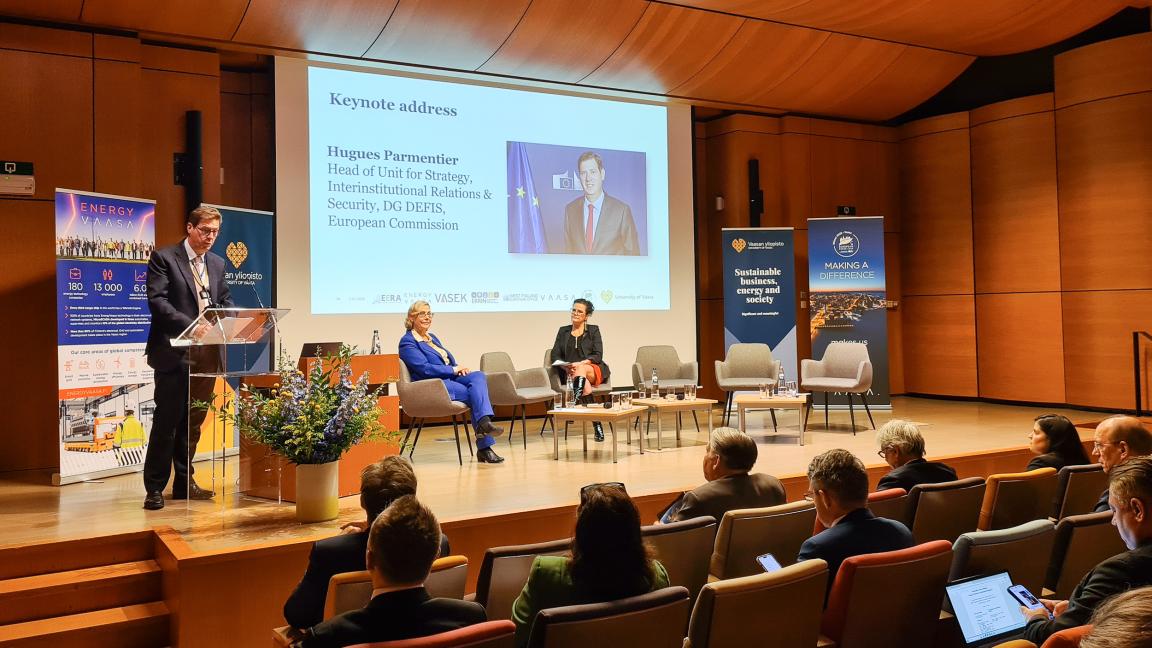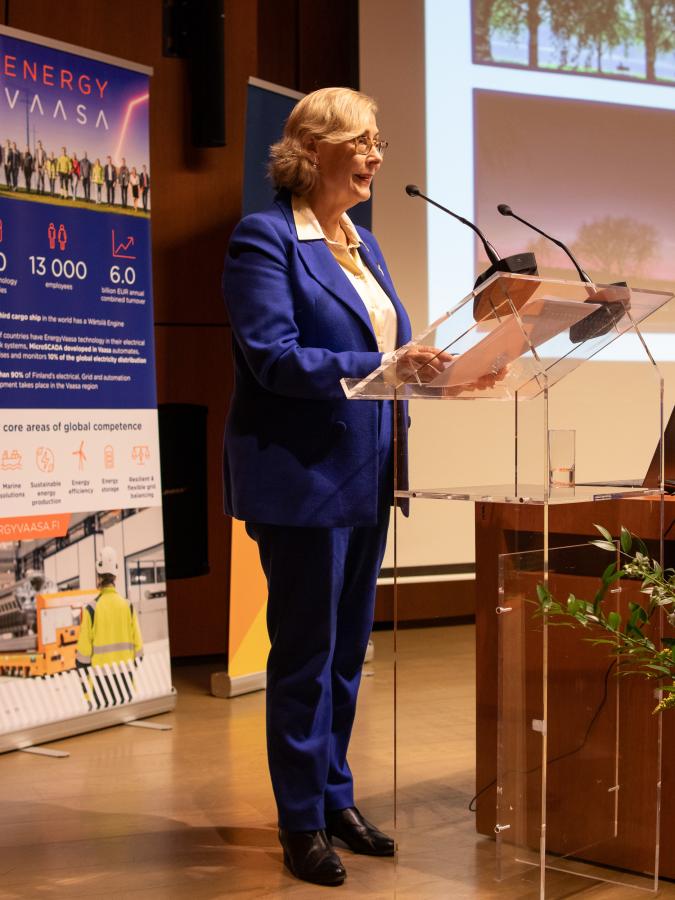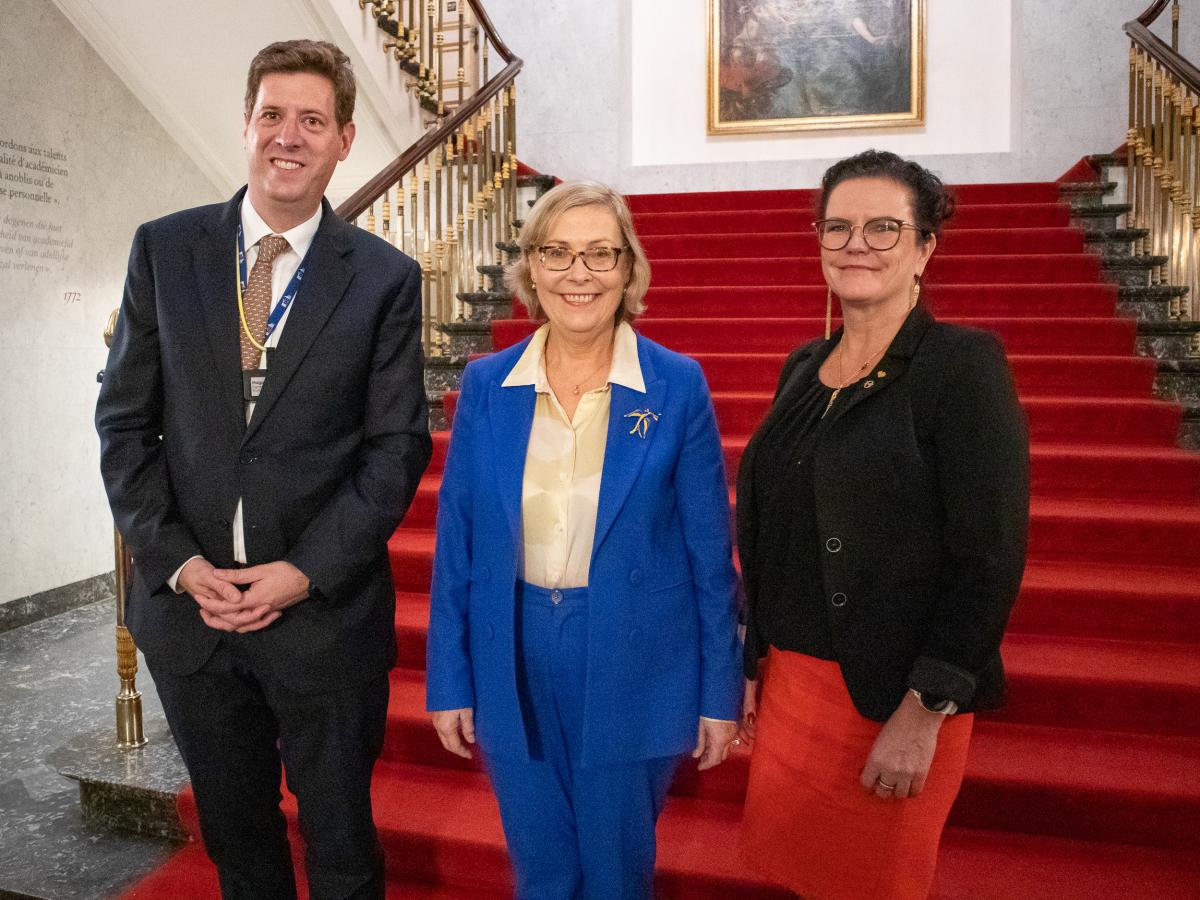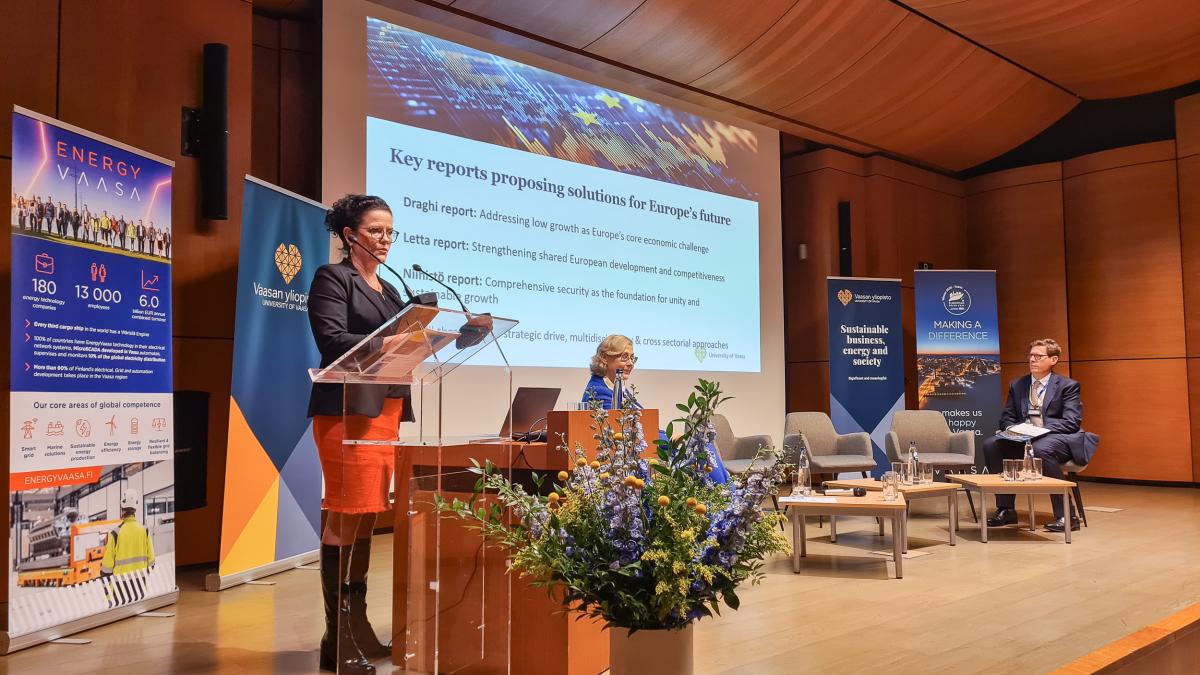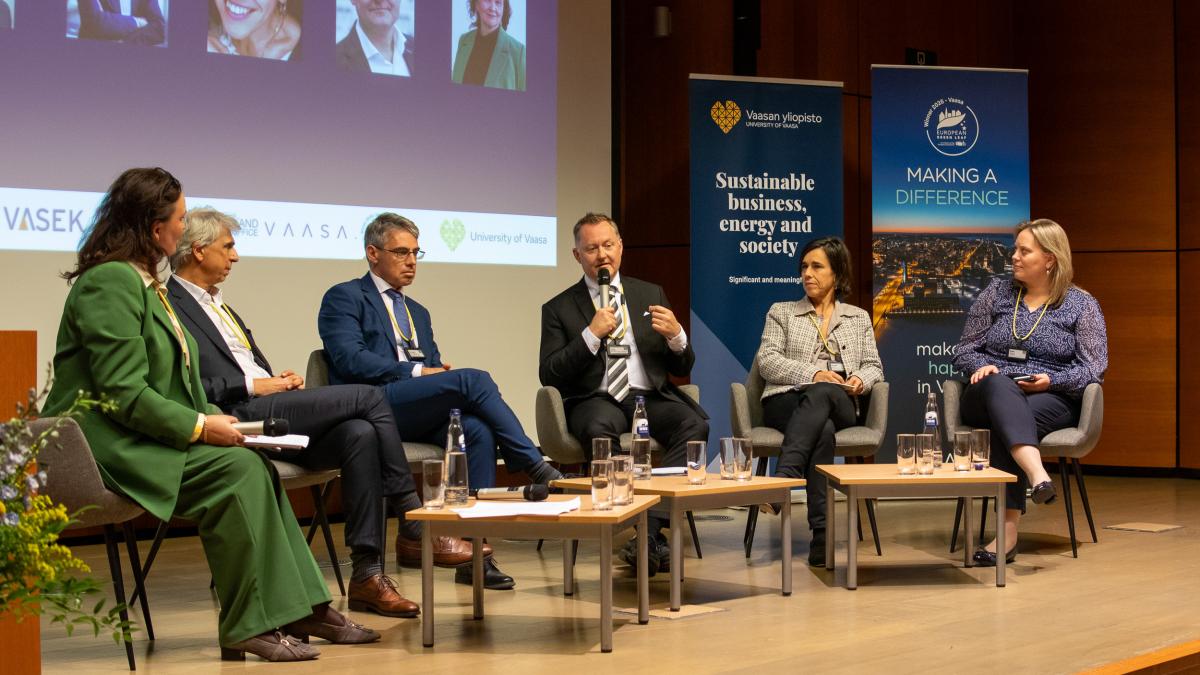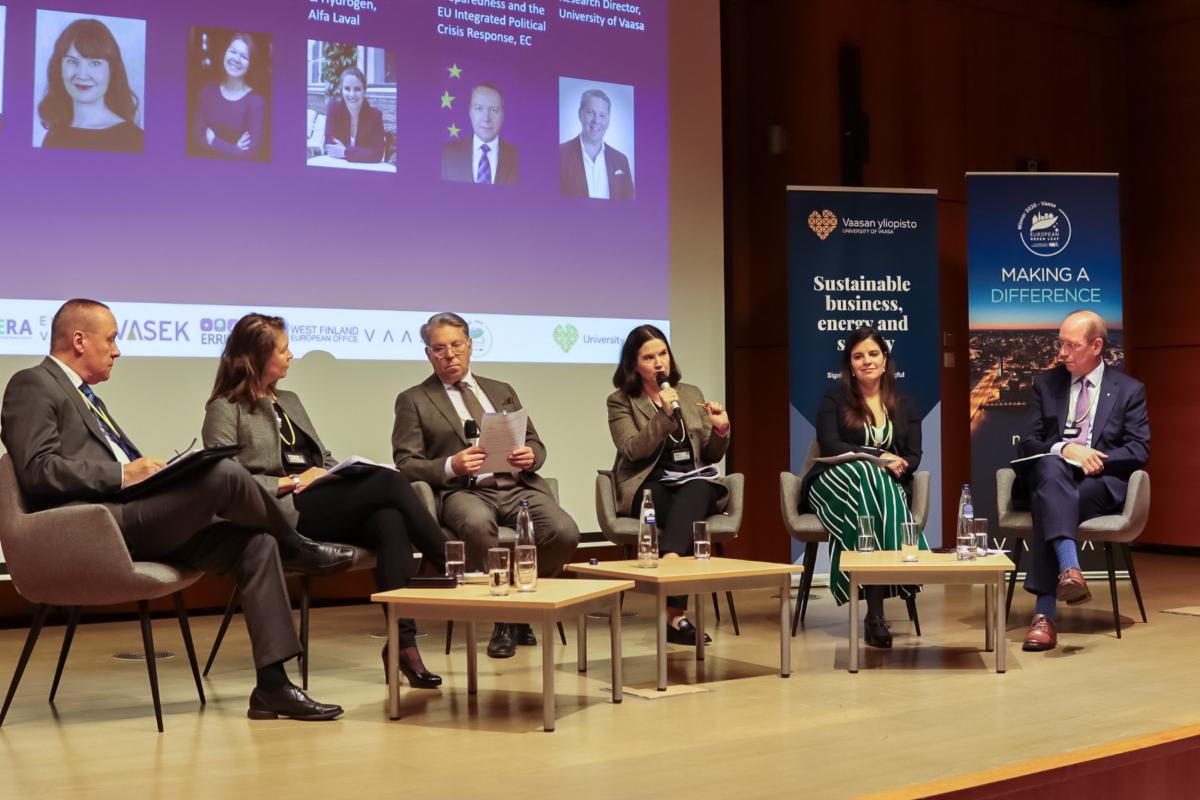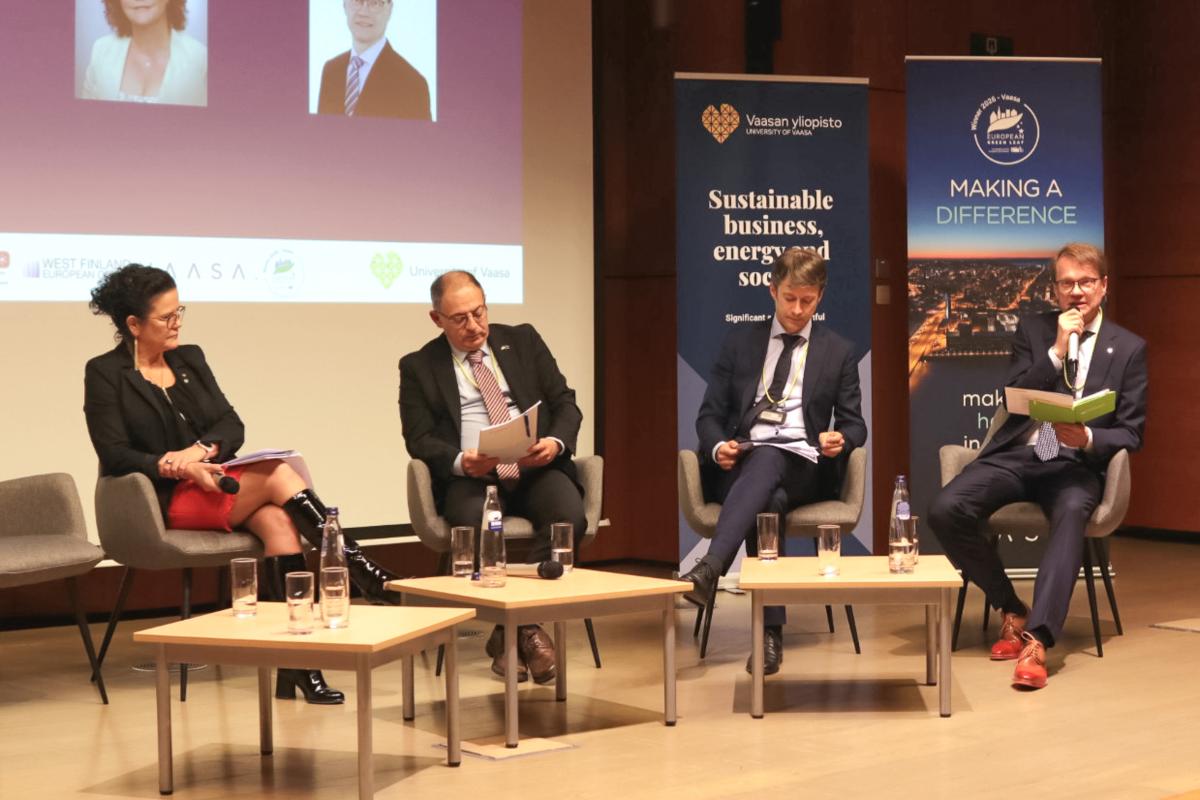In the opening keynote addresses, speakers examined the economic, geopolitical and technological pressures currently shaping Europe’s energy landscape. In her keynote, Signe Ratso, Deputy Director-General at the European Commission’s Directorate-General for Research and Innovation, emphasised that the clean energy transition sits at the core of Europe’s response to current economic, climate and security challenges. She highlighted the need to reshape Europe’s industrial base to improve competitiveness, reduce emissions and advance circularity through ambitious, innovation-driven policy.
– This is about reshaping the foundation of our economy and societies, building a competitive, decarbonised and circular economy with a fair transition for all, she said.
Ratso underlined that the clean energy transition will rely not only on funding, but also on predictable demand, strengthened market integration and clearer decarbonisation targets. She pointed to forthcoming initiatives such as the European Grid Package, measures to deepen electricity market integration and the Electrification Action Plan, all designed to accelerate the deployment of clean technologies and support energy-intensive industries. Further legislative efforts will focus on enabling European lead markets, speeding up planning and permitting processes and helping companies develop, scale and deploy next-generation cleantech solutions within Europe. Ratso also highlighted plans for the Industrial Accelerator Act and the Industrial Circular Economy Act and referred to several new initiatives planned for 2026.
Hugues Parmentier, Head of Unit at the European Commission’s Directorate-General for Defence Industry and Space, discussed the growing importance of comprehensive resilience in the face of hybrid threats and vulnerabilities across critical infrastructure. He reminded that energy lies at the intersection of preparedness, resilience and readiness.
– Without energy, nothing else works, no banking system, no hospitals, no communications, no defence operations.
Parmentier underlined the need to move from voluntary cooperation to binding regulation and highlighted challenges including physical infrastructure, digital systems, supply chains, disinformation and economic coercion.
In her keynote address, Rector Minna Martikainen from the University of Vaasa noted that recent European reports highlight low growth, competitiveness challenges and the need for comprehensive security. She emphasised the clean energy transition as the primary response to these pressures. Martikainen pointed to the Energy Transition Valley initiative as an example of business-driven, university-led cooperation, providing new research infrastructure and doctoral education to support corporate RDI activities. She also said that the University of Vaasa is strengthening preparedness through the new Preparedness and Resilience Research Platform.
Energy security, resilience and innovation
The first panel discussion, moderated by Professor of Practise Hanna Smith, focused on energy security, resilience and innovation. Wärtsilä Energy’s Malin Östman warned against treating challenges in isolation, arguing that solutions must be developed at system level.
– If we think one problem, one solution, one incentive – and another problem, another solution, another incentive, we end up self-optimising the system and increasing overall cost.
Georgios Giannopoulos from DG JRC, European Commission, pointed to a mismatch between technological development and policy cycles, calling for faster science-for-policy alignment. Adel El Gammal from the European Energy Research Alliance stressed that resilience can sometimes conflict with efficiency and requires new system-level thinking. Mónika Zsigri from DG ENER, European Commission, highlighted geopolitical uncertainty, supply chain dependencies and the increasing impact of extreme weather on energy systems. Knut Samdal from SINTEF reminded that Europe’s energy infrastructure has long been developed under the assumption of “eternal deep peace”, an assumption that no longer holds.
Geopolitical realities and industrial sustainability transformation
A second panel, moderated by Research Director Petri Uusikylä, examined geopolitical realities and industrial sustainability transformation. Kari Renko from the Patria Corporation emphasised that civil and military preparedness are not separate domains, and warned that reducing strategic dependencies requires political willingness to pay the price.
– The reason we outsourced certain production to China is because it was easy business. Now we face a huge dependency, and reversing it comes with a cost.
Johanna Sumuvuori from the EU Centre of Excellence for Civilian Crisis Management underlined the need for fact-based decision-making and strategic communication to counter disinformation. Florin Urseanu from the European Commission's Secretariat-General stressed that population-level resilience and dual-use capabilities are critical lessons from Ukraine. Luciana Mendes from Alfa Laval noted that Europe must deploy its own technologies at scale to remain competitive. Suvi Aho from the City of Vaasa highlighted local-level data collaboration, redundancy in energy networks and civic engagement as key enablers of resilience.
In the event’s concluding discussion, participants examined the impact of digitalisation and artificial intelligence on energy systems, as well as the role of startup ecosystems in scaling new technologies. DG Connect’s Matthieu De Lescluze emphasised a two-sided challenge: AI can optimise energy systems, yet its own energy consumption is growing rapidly. EIC’s Stéphane Ouaki stressed the need for fast partnership models to bring deep-tech innovations to market.
The event was organised by the University of Vaasa in association with EERA, ERRIN, VASEK, Energy Vaasa, the City of Vaasa – European Green Leaf City 2026, and WEFO. The moderator of the event was Philippe Vanrie from the University of Vaasa.
